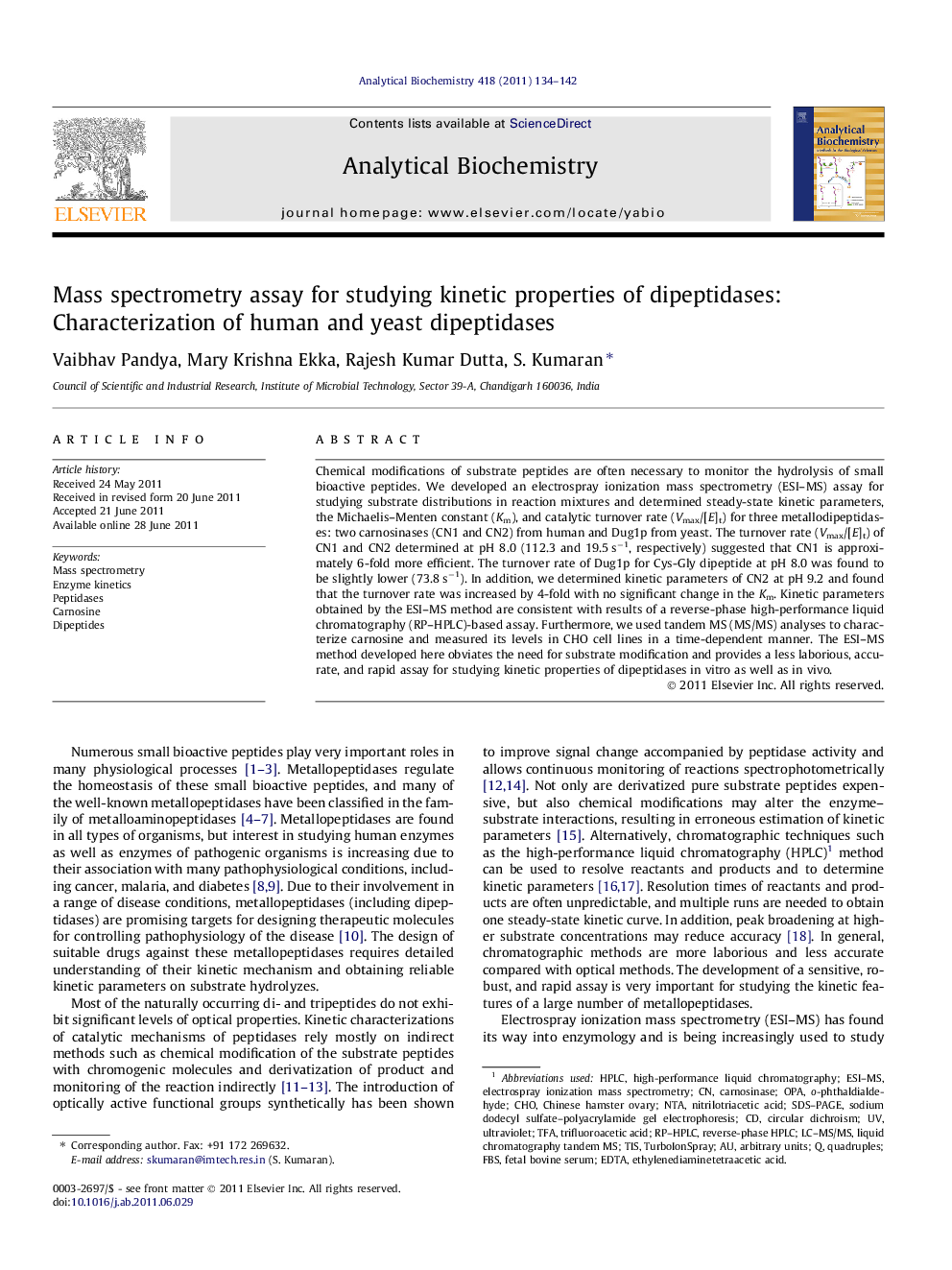| Article ID | Journal | Published Year | Pages | File Type |
|---|---|---|---|---|
| 10532635 | Analytical Biochemistry | 2011 | 9 Pages |
Abstract
Chemical modifications of substrate peptides are often necessary to monitor the hydrolysis of small bioactive peptides. We developed an electrospray ionization mass spectrometry (ESI-MS) assay for studying substrate distributions in reaction mixtures and determined steady-state kinetic parameters, the Michaelis-Menten constant (Km), and catalytic turnover rate (Vmax/[E]t) for three metallodipeptidases: two carnosinases (CN1 and CN2) from human and Dug1p from yeast. The turnover rate (Vmax/[E]t) of CN1 and CN2 determined at pH 8.0 (112.3 and 19.5Â sâ1, respectively) suggested that CN1 is approximately 6-fold more efficient. The turnover rate of Dug1p for Cys-Gly dipeptide at pH 8.0 was found to be slightly lower (73.8Â sâ1). In addition, we determined kinetic parameters of CN2 at pH 9.2 and found that the turnover rate was increased by 4-fold with no significant change in the Km. Kinetic parameters obtained by the ESI-MS method are consistent with results of a reverse-phase high-performance liquid chromatography (RP-HPLC)-based assay. Furthermore, we used tandem MS (MS/MS) analyses to characterize carnosine and measured its levels in CHO cell lines in a time-dependent manner. The ESI-MS method developed here obviates the need for substrate modification and provides a less laborious, accurate, and rapid assay for studying kinetic properties of dipeptidases in vitro as well as in vivo.
Related Topics
Physical Sciences and Engineering
Chemistry
Analytical Chemistry
Authors
Vaibhav Pandya, Mary Krishna Ekka, Rajesh Kumar Dutta, S. Kumaran,
